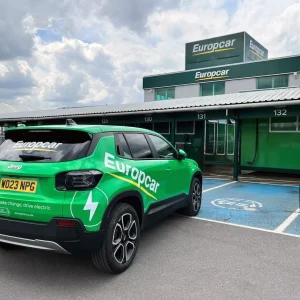The fleet sector needs to take a zero-tolerance approach to the main causes of road deaths and injuries, according to camera telematics company Visiontrack.
The firm is co-headline sponsor of charity Brake’s Road Safety Week, and has also launched its own Fleet Risk Reduction campaign.
CEO Simon Marsh said vehicle operators needed to do more to improve work-related road safety, with the sector accounting for a third of all traffic collisions each year.
Marsh said: “Government figures estimate that work-related driving could be responsible for over 20 fatalities and 250 serious injuries every week, which is simply unacceptable when vehicles have never been safer.
“As a co-headline sponsor of Brake’s Road Safety Week, we are using this opportunity to make an urgent call to action to eliminate fleet risk that is costing lives and causing unnecessary suffering.
“As part of this, we are launching our own initiative, so we can work with customers and the wider fleet community to tackle some of the biggest threats facing their drivers and other road users.”
Visiontrack says its campaign is designed to educate and engage with drivers and companies, with the aim of mitigating the impact of fleet risk on the road network.
The initiative calls on vehicle operators to target five key pillars of fleet safety, which Visiontrack says can contribute to a dramatic reduction in road collisions and ultimately save lives.
The pillars are as follows:
Slow down: Visiontrack cites UK police statistics showing that exceeding the speed limit and travelling too fast for the driving conditions contributed to 27% of fatal collisions in 2020, as well as 16% of collisions in which a serious injury occurred and 13% of total collisions.
Belt up: Not wearing a seatbelt contributed to 30% of road deaths in 2021, a figure that increased to 47% at night. Despite this, over 5% of drivers still do not use a seatbelt , according to Department for Transport figures.
Take a break: Fatigue contributes to about 4% of fatal road crashes and 2% of all collisions in the UK, according to police statistics, but Visiontrack says the true figure is likely to be far higher as tiredness is difficult to spot and test for.
Just drive: Using a mobile phone behind the wheel makes motorists four times more likely to be in a crash, while reaction times when using a hands-free phone are 30% slower than if a driver is at the drink-drive limit, according to Brake.
Stay focused: The European Commission says between 10% and 30% of road collisions are caused by driver distraction, while the Department for Transport recorded 51 fatalities resulting from in-vehicle distraction in 2020.
Marsh said: “Working with our key partners in the UK and internationally – including Brake, Together for Safer Roads and Driving for Better Business – our objective is to champion road safety.
“Road Safety Week is crucial to raising awareness and promoting important messages, but we wanted to introduce our own initiative that maintains Visiontrack’s focus throughout the year.
“Our Fleet Risk Reduction campaign will be a key part of our commitment to making the roads a safer place for all and we look forward to announcing further details shortly.”





